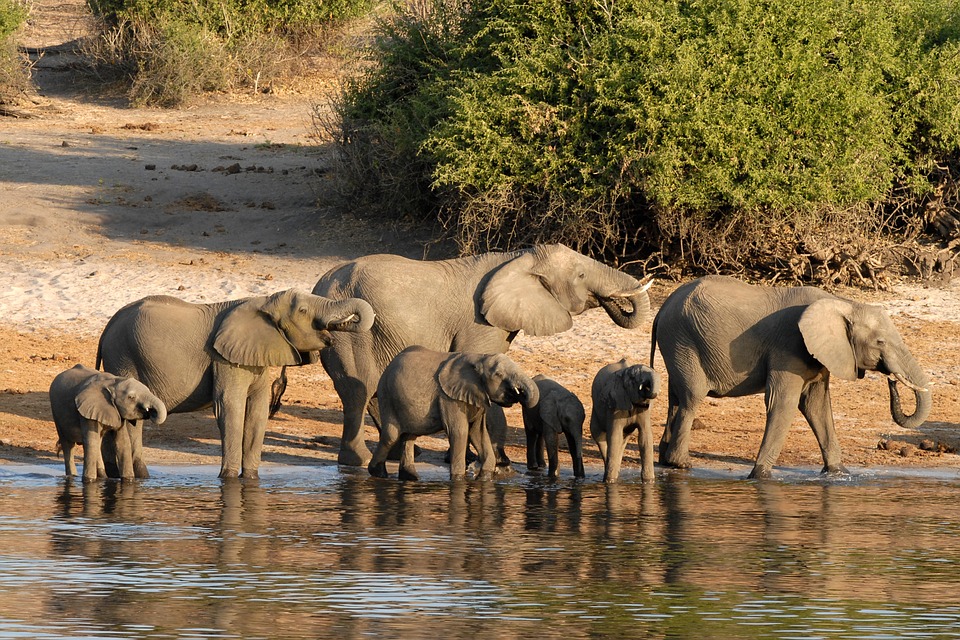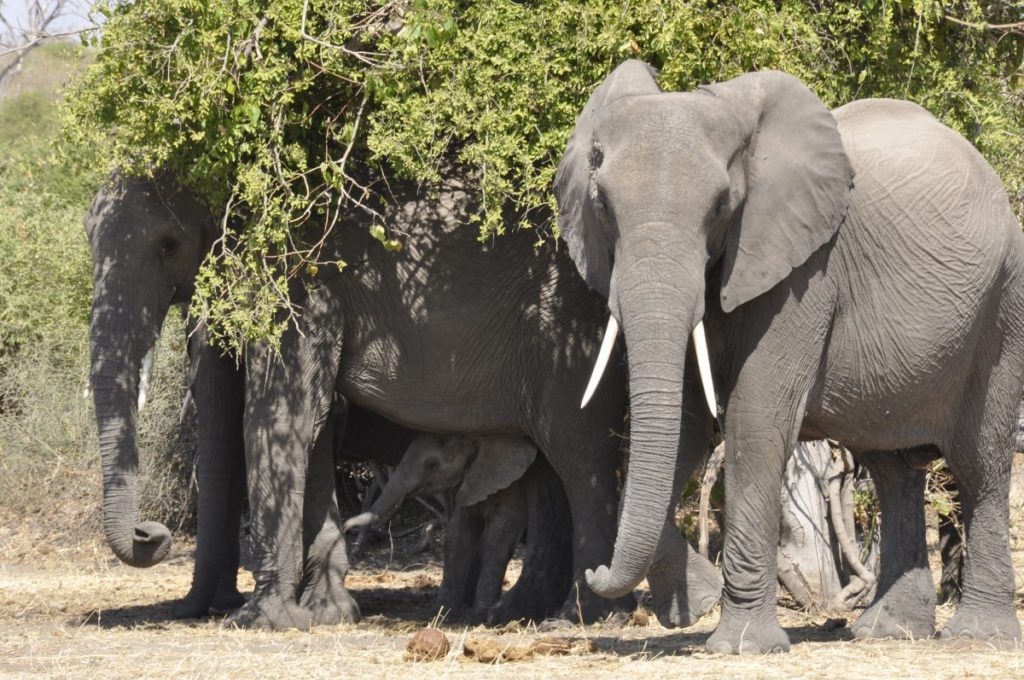Scientists believe that Africa may have held as many as 20 million elephants in pre-European colonization. In 1979, the figure was only 1.3 million. Over just seven years (2007-2014), the elephant population decreased by at least 30 percent (ca. 144 thousand.) According to recent estimates, there are more than 130 thousand elephants in Botswana, the most of any African country.
Elephant Hunting Ban from 2014
The South African country issued elephant hunting ban in 2014. The official reason for the ban was the non-observance of ethical standards by hunters, which should have led to a reduction in wildlife.
Botswana inhabitants disagree with the ban because the elephants destroy their lands and crops, kill farm animals, destroy water supplies, and sometimes even injure or kill people. These problems are caused by the loss of the natural environment of elephants.
BREAKING Botswana lifts elephant hunting ban under guise of helping communities as Masisi destroys Ian Khama’s globally respected legacy of policies that saw elephants protected. Expect mass culling next & aggressive efforts 2 reopen ivory trade. Impact will b felt across Africa pic.twitter.com/M2oaltfHvv
— Dr. Paula Kahumbu (@paulakahumbu) May 22, 2019
Abolition of the Ban
On Wednesday, May 22, Botswana’s Ministry of Environment, Natural Resources Conservation and Tourism announced that the ban was ending with a letter to the media, which the ministry shared to Facebook, and added that less than 400 elephant hunting licenses will be granted each year. The Ministry has promised that re-instatement of hunting would be done an ethical manner, and in accordance with the Wildlife Conservation and National Parks Act and the Wildlife Conservation and National Parks (Hunting and Licensing) Regulations.
LIFTING OF HUNTING SUSPENSION & CREATION OF A CITIZEN EMPOWERMENT MODEL FOR TOURISM IN BOTSWANA
In June 2018, a Presidential Sub-Committee of Cabinet was tasked to initiate a social dialogue aimed at reviewing the ban on hunting #BatswanaFirst #HumanWildlifeConflictIsReal 🐘 pic.twitter.com/xNRiFcvStB
— Botswana Government (@BWGovernment) May 23, 2019
Why Are Elephants Hunted
The main reasons are not personal necessities, as a man would expect. There’s either trophy hunting – a form of recreational hunting, typically with the intention of displaying the animal’s head as decor. Then there’s poaching – when poachers illegally kill elephants for their ivory tusks and for meat.
The African Elephant is on the Red List of the International Union for Conservation of Nature (IUCN) and is classified as a vulnerable species. Conservationists warn that the species could eventually disappear with this abolition if it is not sufficiently protected.
















